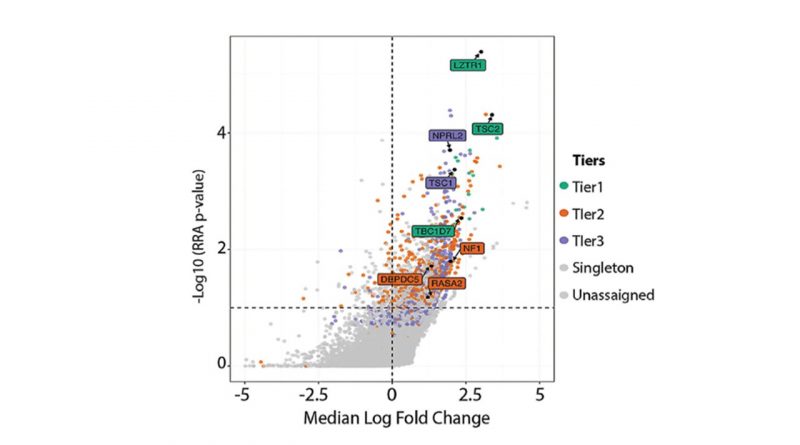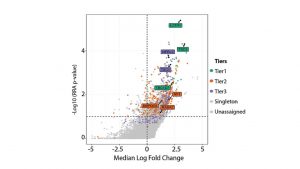Highlight Activities 2022: Genome-wide CRISPR screen identifies regulators of MAPK and MTOR pathways mediating sorafenib resistance in acute myeloid leukemia
Drug resistance impedes the long-term effect of targeted therapies in acute myeloid leukemia (AML), necessitating the identification of mechanisms underlying resistance. Approximately 25% of AML patients carry FLT3 mutations and develop post-treatment insensitivity to FLT3 inhibitors, including sorafenib. Using a genome-wide CRISPR screen, we identified LZTR1, NF1, TSC1 or TSC2, negative regulators of the MAPK and MTOR pathways, as mediators of sorafenib resistance. Analyses of ex vivo drug sensitivity assays in FLT3-ITD AML patient samples revealed lower expression of LZTR1, NF1, and TSC2 correlated with sorafenib sensitivity. Importantly, MAPK and/or MTOR complex1 (MTORC1) activity were upregulated in AML cells made resistant to several FLT3 inhibitors, including crenolanib, quizartinib, or sorafenib. These cells were sensitive to MEK inhibitors, and the combination of FLT3 and MEK inhibitors showed enhanced efficacy, suggesting its effectiveness in AML patients with FLT3 mutations and those with resistance to FLT3 inhibitors.
Reference
Damnernsawad A, Bottomly D, Kurtz SE, Eide CA, McWeeney SK, Tyner JW, Nechiporuk T. Genome-wide CRISPR screen identifies regulators of MAPK and MTOR pathways mediating sorafenib resistance in acute myeloid leukemia. Haematologica. 2022 Jan 1;107(1):77-85. doi: 10.3324/haematol.2020.257964. PMID: 33375770; PMCID: PMC8719098.
ผลงานที่ตีพิมพ์มีความเชื่อมโยงกับเป้าหมาย SDGs เป้าหมายที่ 3 สร้างหลักประกันการมีสุขภาวะที่ดี และส่งเสริมความเป็นอยู่ที่ดีสำหรับทุกคนในทุกช่วงวัย


